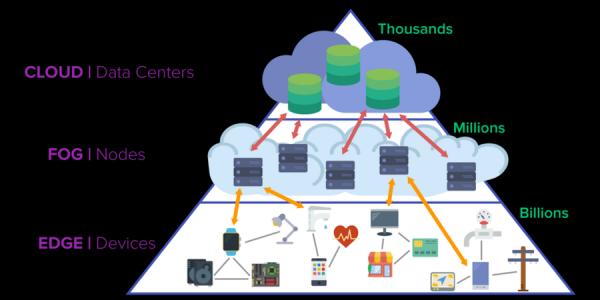The wrong reasons for edge computing: 5G and self-driving cars
Edge computing: another big effort laid out on what may be very shaky foundations.
First of all: what on Earth is edge computing? Quoting from The Verge on one hand “Edge is a buzzword. Like IoT and cloud before it, edge means everything and nothing." Nevertheless, edge computing also has some concrete applications, and useful potential. From the same article:
- Big companies have realized that almost everything that can be centralized has been centralized. Most new opportunities for “cloud computing” lie at its “edge”
- in this context, edge “means literal geographic distribution. Edge computing is computing done at or near the source of the data, instead of relying on the cloud at one of a dozen data centers to do all the work.”

<u><em><strong>CAPTION:</strong>
<a href="https://knect365.com/cloud-enterprise-tech/article/3157ea5f-c11c-49c3-9350-74363829ecf2/when-will-edge-computing-live-up-to-its-hype" target="_blank">Image Source: When will Edge Computing Live Up to its Hype?</a>
</em></u>
What will increase the need for edge computing?
Open19 is a specification of “a new way to build data centers” that standardizes many hardware components needed for edge computing. In a recent interview, one of its architects said, among other things, that:
“the need for reducing latency [and, consequently, for edge computing] will only increase with the advent of emerging technologies such as 5G-enabled self-driving cars. 5G promises streaming rates measured in gigabytes per second for each and every connected device and will result in the need for edge data centers to be constructed in locations that are far from ideal.”
And this is where my doubts (which maybe should be the same of every edge computing investor) start. How do those statements fare against:
- all these concerns on 5G SECURITY which are equally valid for edge computing, if not more. Edge computing means handling even remote surgery or driverless cars, not just websites, from remote locations instead of secure data centers
- the very concrete possibility that “5G will never deliver performance like that - and anyway its time is still years away for most of us most of the time”. “Forget all those stories of 20 Gbps speeds and 1 millisecond latency”
- the EXTRA pollution, and the consequent political opposition that must happen to produce 5G equipment and all the supporting infrastructures. Including edge computing, obviously
If I felt conspirationist, I could now link to worries about the alleged health hazards from 5G. I could also add my serious doubts that driverless cars really need even kilobytes per second, never mind gigabytes, but I will save that topic for another post.
Edge computing does have reasons to exist, and open standards for it are surely needed. But the three points above should be enough to show why betting your money on anything advertised as needed, in non-negligible part, by “the advent of 5G-enabled self-driving cars” may not be your smartest investment.
Who writes this, why, and how to help
I am Marco Fioretti, tech writer and aspiring polymath doing human-digital research and popularization.
I do it because YOUR civil rights and the quality of YOUR life depend every year more on how software is used AROUND you.
To this end, I have already shared more than a million words on this blog, without any paywall or user tracking, and am sharing the next million through a newsletter, also without any paywall.
The more direct support I get, the more I can continue to inform for free parents, teachers, decision makers, and everybody else who should know more stuff like this. You can support me with paid subscriptions to my newsletter, donations via PayPal (mfioretti@nexaima.net) or LiberaPay, or in any of the other ways listed here.THANKS for your support!